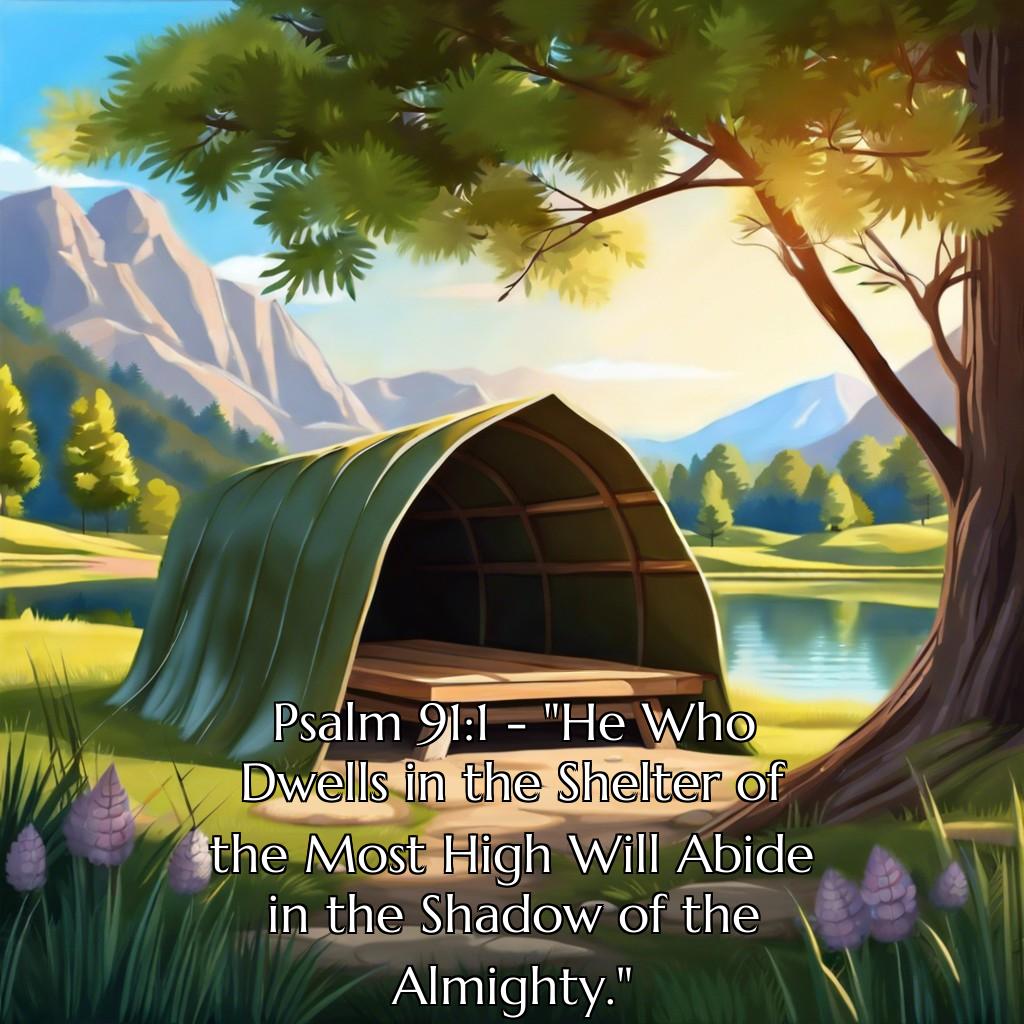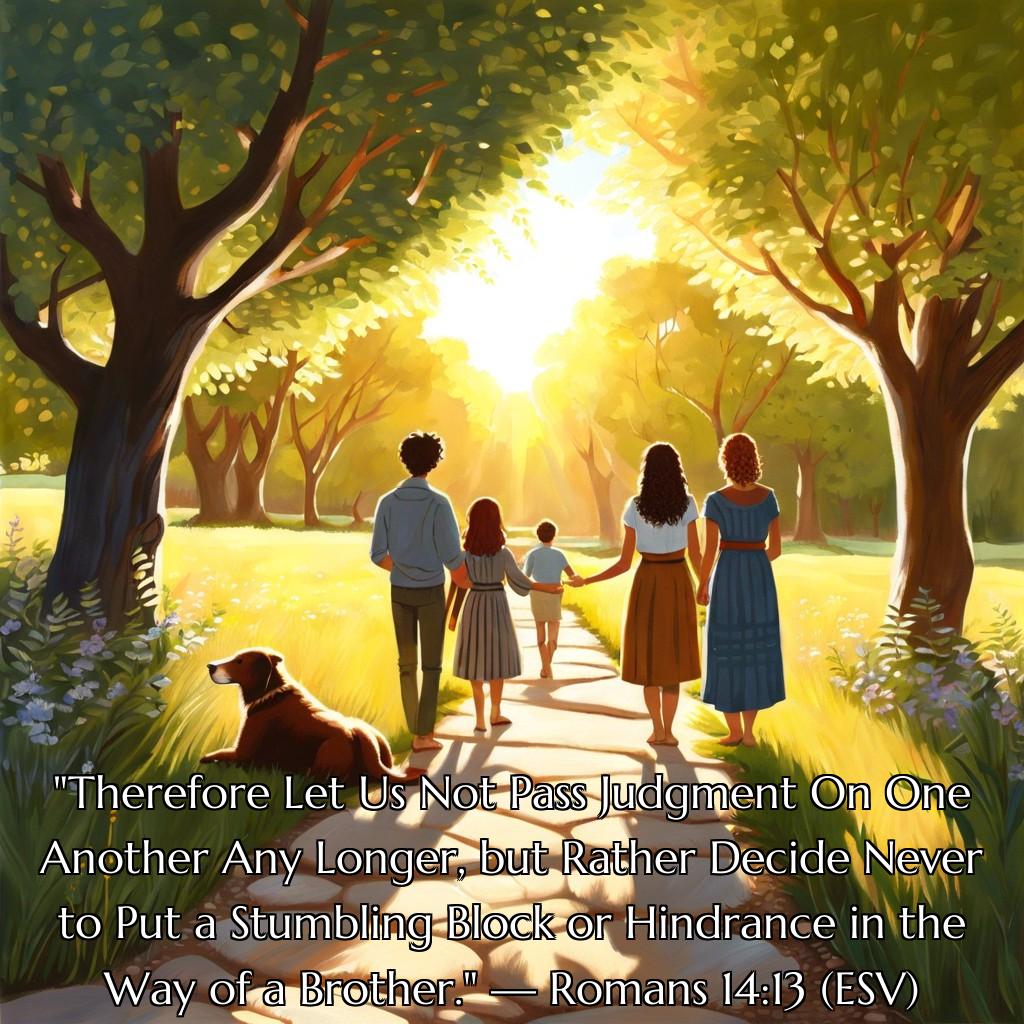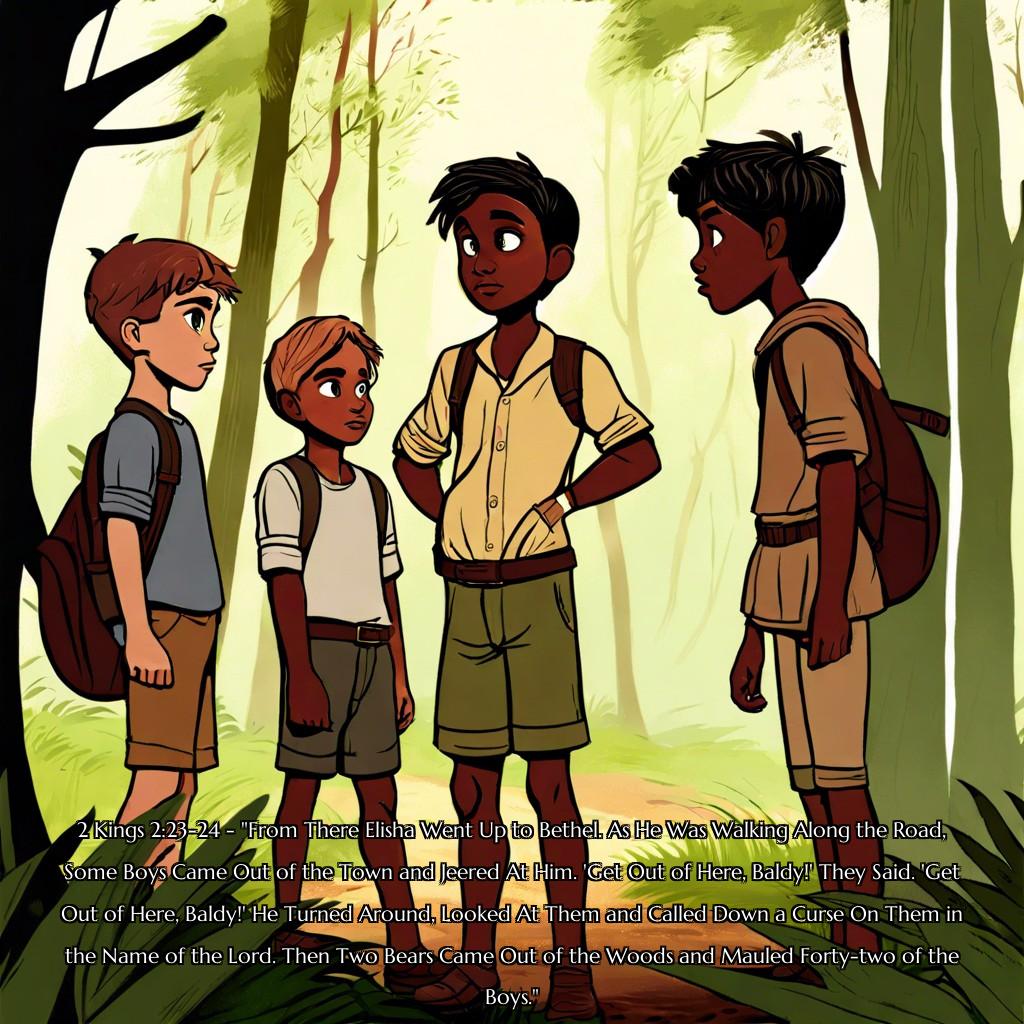This article will examine ten unusual Bible verses and their meanings.
The Bible is filled with many profound and inspiring verses, but it also contains some passages that can seem downright perplexing or bizarre at first glance. These verses often leave readers scratching their heads, wondering about their context and deeper meaning. This list unpacks the oddities and explores their significance, shedding light on even the strangest biblical narratives that you might never have expected to come across. Dive in for an intriguing journey through some of the Bible’s most unusual verses.
2 Kings 2:23-24: “From There Elisha Went Up to Bethel. As He Was Walking Along the Road, Some Boys Came Out of the Town and Jeered At Him. ‘Get Out of Here, Baldy!’ They Said. ‘Get Out of Here, Baldy!’ He Turned Around, Looked At Them and Called Down a Curse On Them in the Name of the Lord. Then Two Bears Came Out of the Woods and Mauled Forty-two of the Boys.”

This passage from 2 Kings often raises eyebrows due to its unexpected harshness. Elisha, a prophet of God, is mocked by a group of young boys. Their taunts targeted his baldness, an insult in that culture.
Firstly, the severity of the curse shows God’s protection over His prophets. This wasn’t just about name-calling; it was a serious affront to God’s representative.
Secondly, the bear attack can be seen as a divine message that disrespect towards God and his messengers carries serious consequences.
Finally, it underscores the holiness and authority imbued in prophets. Elisha’s reaction, though startling, was a mechanism to affirm his God-given authority and ensure the respect of his prophetic office.
Leviticus 19:19: “Keep My Decrees. Do Not Mate Different Kinds of Animals. Do Not Plant Your Field With Two Kinds of Seed. Do Not Wear Clothing Woven of Two Kinds of Material.”

This verse highlights several unique and peculiar commands that might seem odd in a modern context:
Firstly, the prohibition against breeding different kinds of animals reflects a concern for maintaining purity within God’s creation. The ancient Israelites were to respect the distinctions God established in nature.
Secondly, not mixing seeds in a field can be seen as a way to ensure agricultural purity and prevent the potential for chaos in crop development. It also reflects a deeper symbolic message about maintaining holiness and order.
Lastly, the command against wearing clothing of mixed materials might seem baffling. However, it can be interpreted as a call for the Israelites to live distinct, set apart from neighboring cultures. Their attire was an outward sign of their unique identity and dedication to God.
Collectively, these directives emphasize holiness, purity, and the importance of boundaries in the life of the faithful. They remind us how committed the Israelites were to being a people set apart for the Lord.
Deuteronomy 25:11-12: “If Two Men Are Fighting and the Wife of One of Them Comes to Rescue Her Husband From His Assailant, and She Reaches Out and Seizes Him By His Private Parts, You Shall Cut Off Her Hand. Show Her No Pity.”
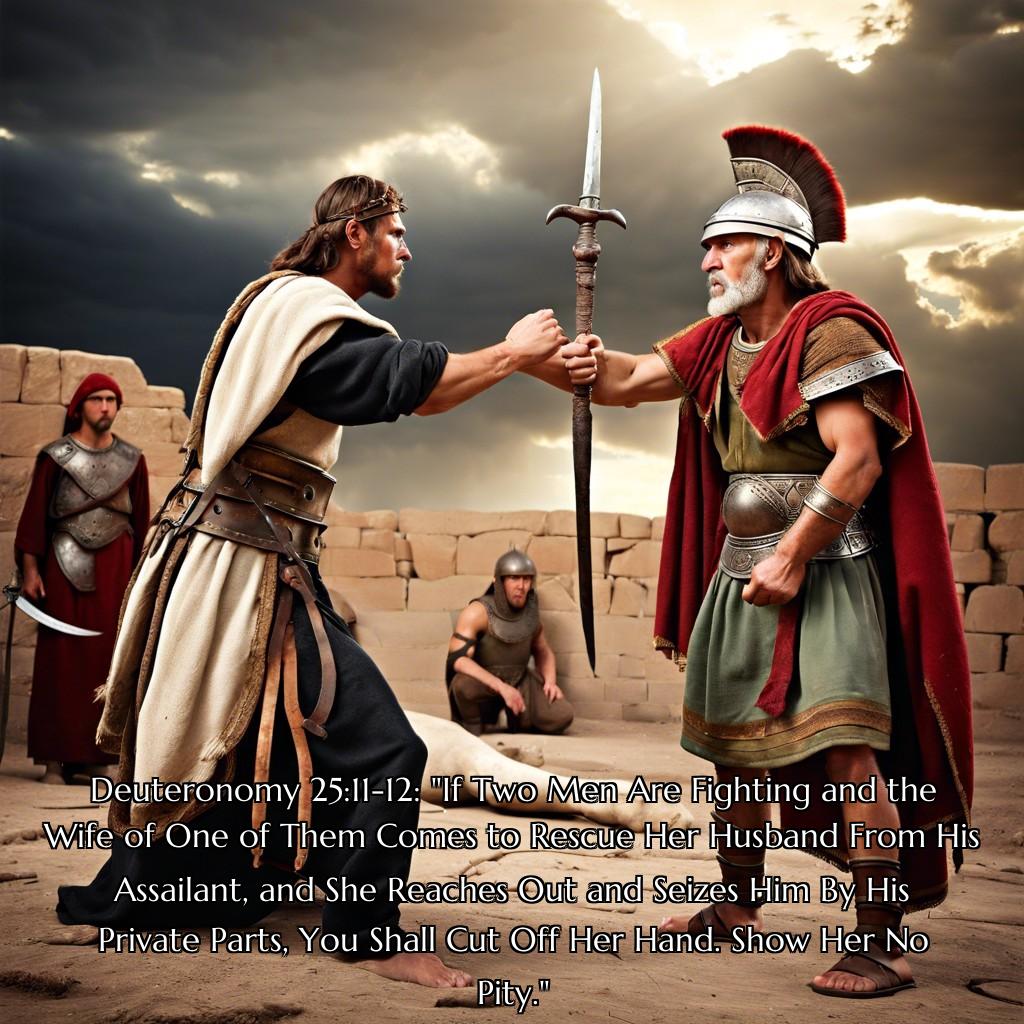
This verse sparks curiosity due to its severe directive. It feels shocking, especially from a modern perspective. However, it serves several purposes:
First, it highlights the sanctity of modest conduct even during conflicts. Ancient Israel had stringent guidelines to maintain decorum in all activities, and this extends to physical altercations.
Second, it may reflect a symbolic defense of male dignity. Losing in a fight could be seen as shameful; hence, elevating the stakes for inappropriate intervention keeps honor intact.
Third, the verse underscores the seriousness of using disproportionate force. The punishment seems harsh, but it aims to deter drastic, potentially humiliating acts.
These aspects illustrate the depth and complexity of ancient laws, revealing values not immediately apparent to contemporary readers.
Ezekiel 4:12: “Eat the Food As You Would a Loaf of Barley Bread; Bake It in the Sight of the People, Using Human Excrement for Fuel.”
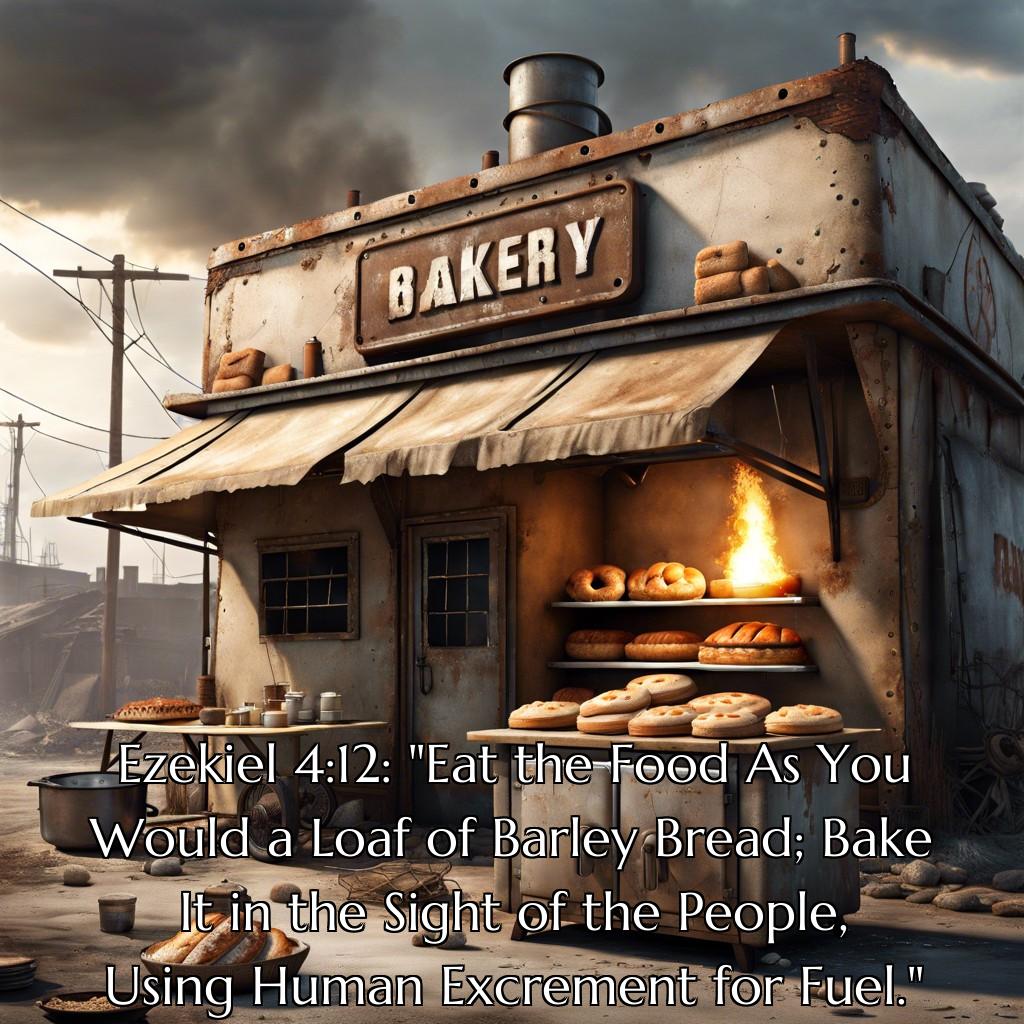
Ezekiel 4:12 presents a strange and striking image that can be difficult to understand. Here are some key points to help make sense of it:
- Symbolic Act: God commands Ezekiel to perform a symbolic act to illustrate the severe conditions that Jerusalem will face during the Babylonian siege.
- Barley Bread: Barley was considered a poor man’s grain, indicating scarcity and hardship.
- Human Excrement: The use of human excrement as fuel signifies extreme desperation and unclean conditions. It represents the defilement and dire circumstances of the people.
- Prophetic Message: Through this act, God conveys the impending judgment on Jerusalem and the consequences of their disobedience.
By understanding these elements, the verse becomes a powerful depiction of the severity of divine punishment and a call to repentance.
Exodus 4:24-25: “At a Lodging Place On the Way, the Lord Met Moses and Was About to Kill Him. But Zipporah Took a Flint Knife, Cut Off Her Son’s Foreskin and Touched Moses’ Feet With It. ‘Surely You Are a Bridegroom of Blood to Me,’ She Said.”
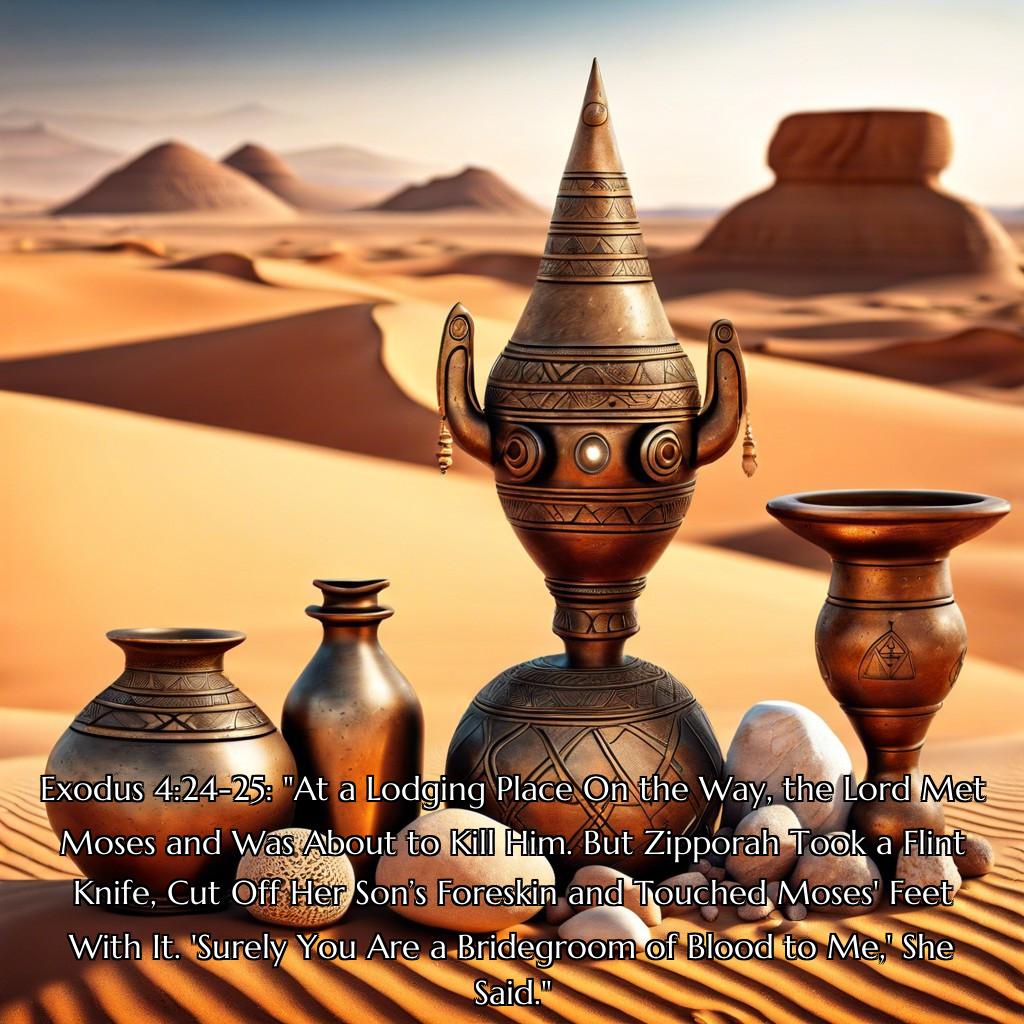
This passage is both puzzling and dramatic. As Moses is en route to Egypt to deliver God’s people, he faces a life-threatening divine encounter.
- Divine Demand for Covenant: God’s sudden move to kill Moses highlights the importance of circumcision as a sign of the covenant between God and His people. Moses had seemingly neglected this crucial rite for his son.
- Zipporah’s Quick Action: Zipporah, Moses’ wife, acts decisively, performing the circumcision herself. Her action shows the seriousness of adhering to God’s commands and possibly her own quick-thinking nature.
- Blood Symbolism: By calling Moses a “bridegroom of blood,” Zipporah likely acknowledges the critical connection between the act and their relationship with God. The blood here represents life, salvation, and covenant faithfulness.
This intense episode underscores the weight of obedience to God’s covenant and how serious God is regarding His commands. It stands as a stark reminder about the importance of covenant signs in the relationship between the divine and humanity.
1 Samuel 18:25-27: “Saul Replied, ‘Say to David, ‘The King Wants No Other Price for the Bride Than a Hundred Philistine Foreskins, to Take Revenge On His Enemies.’ Saul’s Plan Was to Have David Fall By the Hands of the Philistines. When the Attendants Told David These Things, He Was Pleased to Become the King’s Son-in-law. So Before the Allotted Time Elapsed, David Took His Men With Him and Went Out and Killed Two Hundred Philistines and Brought Back Their Foreskins. They Counted Out the Full Number to the King So That David Might Become the King’s Son-in-law. Then Saul Gave Him His Daughter Michal in Marriage.”
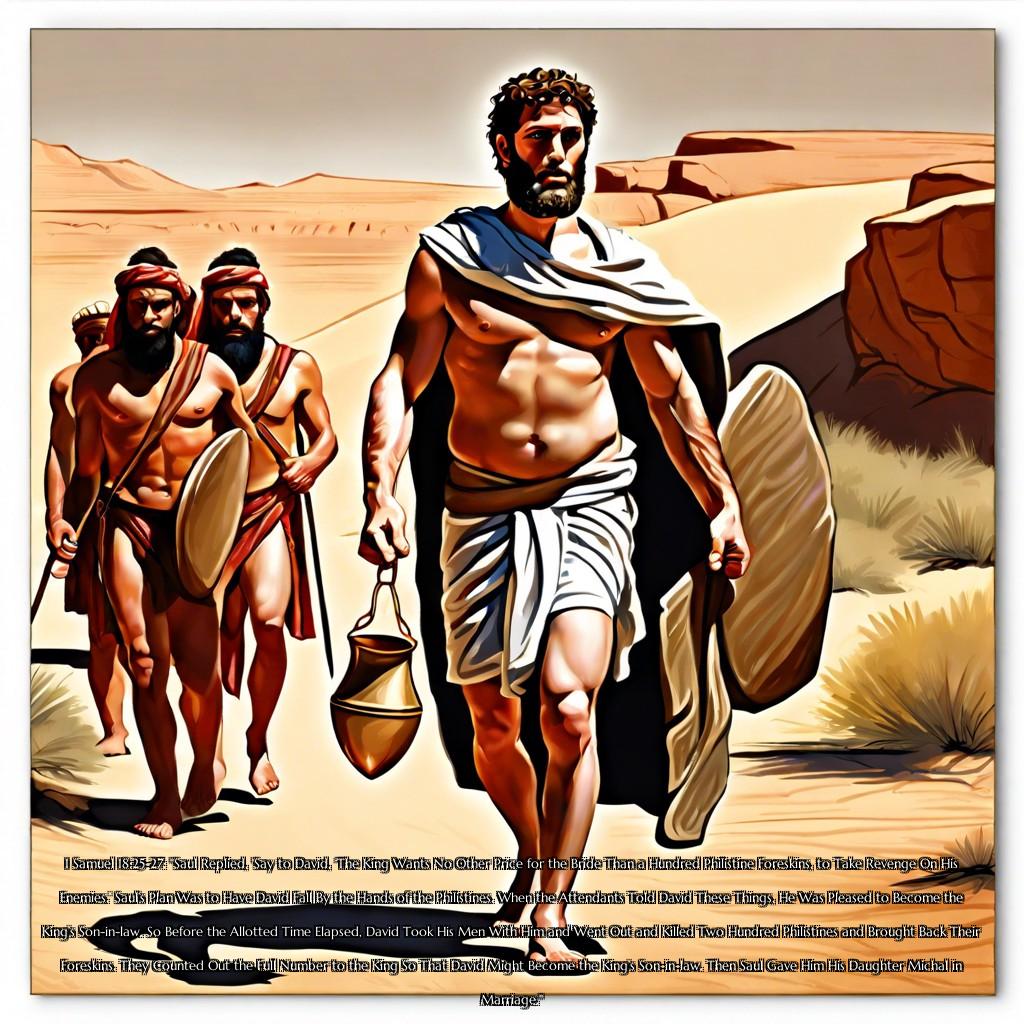
This passage is intriguing, if a bit grisly. Here are a few points to help unpack it:
– King Saul’s Intent: Saul intended to set an impossible task for David, hoping the Philistines would kill him. The request for a hundred foreskins wasn’t just a bizarre demand; it was a deadly mission designed to eliminate David.
– David’s Response: Remarkably, David not only met the challenge but doubled it. Collecting 200 foreskins showed his dedication and valor, affirming his worthiness to become Saul’s son-in-law.
– Marriage to Michal: Despite his malicious intentions, Saul’s plot backfired. David successfully completed the task and married Michal, solidifying his position in the royal family.
This passage is a stark reminder of the intense and often brutal dynamics of ancient warfare and political maneuvering.
Judges 3:21-22: “Ehud Reached With His Left Hand, Drew the Sword From His Right Thigh and Plunged It Into the King’s Belly. Even the Handle Sank in After the Blade, and His Bowels Discharged. Ehud Did Not Pull the Sword Out, and the Fat Closed in Over It.”
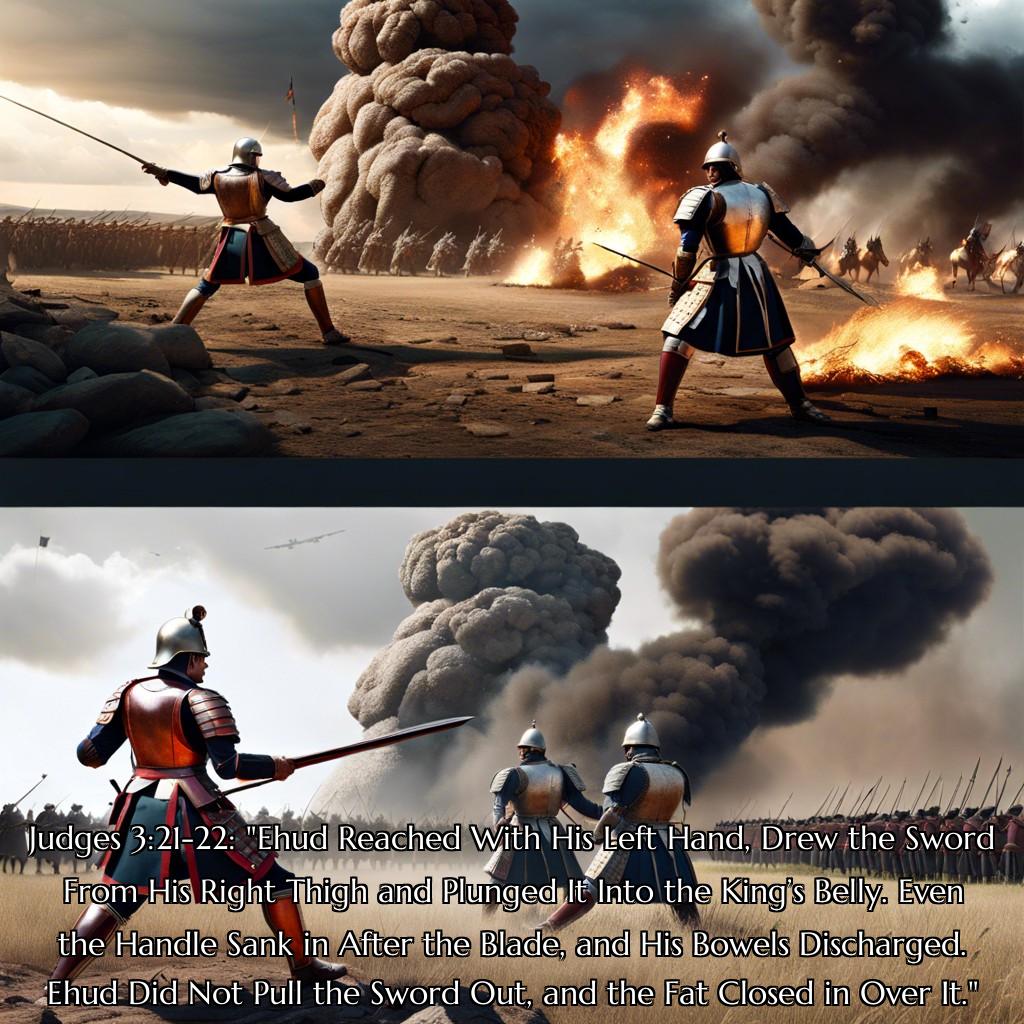
This vivid scene from Judges describes Ehud, Israel’s left-handed judge, assassinating the oppressive Moabite King Eglon. Here’s why this peculiar passage stands out:
First, Ehud’s left-handedness was a strategic advantage; it caught Eglon and his guards off-guard, who would have expected a right-handed attacker.
Second, the gory detail, with the blade disappearing into Eglon’s belly, underscores the dire consequences of Israel’s disobedience and the lengths God would go to deliver His people.
Third, this grim episode serves as a reminder of the visceral, often brutal nature of Old Testament narratives, meant to convey the seriousness of sin and the deliverance God provides.
While unsettling, these graphic elements illustrate the raw and earnest nature of ancient times and the profound measures taken in the liberation of Israel.
Acts 20:9-10: “Seated in a Window Was a Young Man Named Eutychus, Who Was Sinking Into a Deep Sleep As Paul Talked On and On. When He Was Sound Asleep, He Fell to the Ground From the Third Story and Was Picked Up Dead. Paul Went Down, Threw Himself On the Young Man and Put His Arms Around Him. ‘Don’t Be Alarmed,’ He Said. ‘He’s Alive!'”
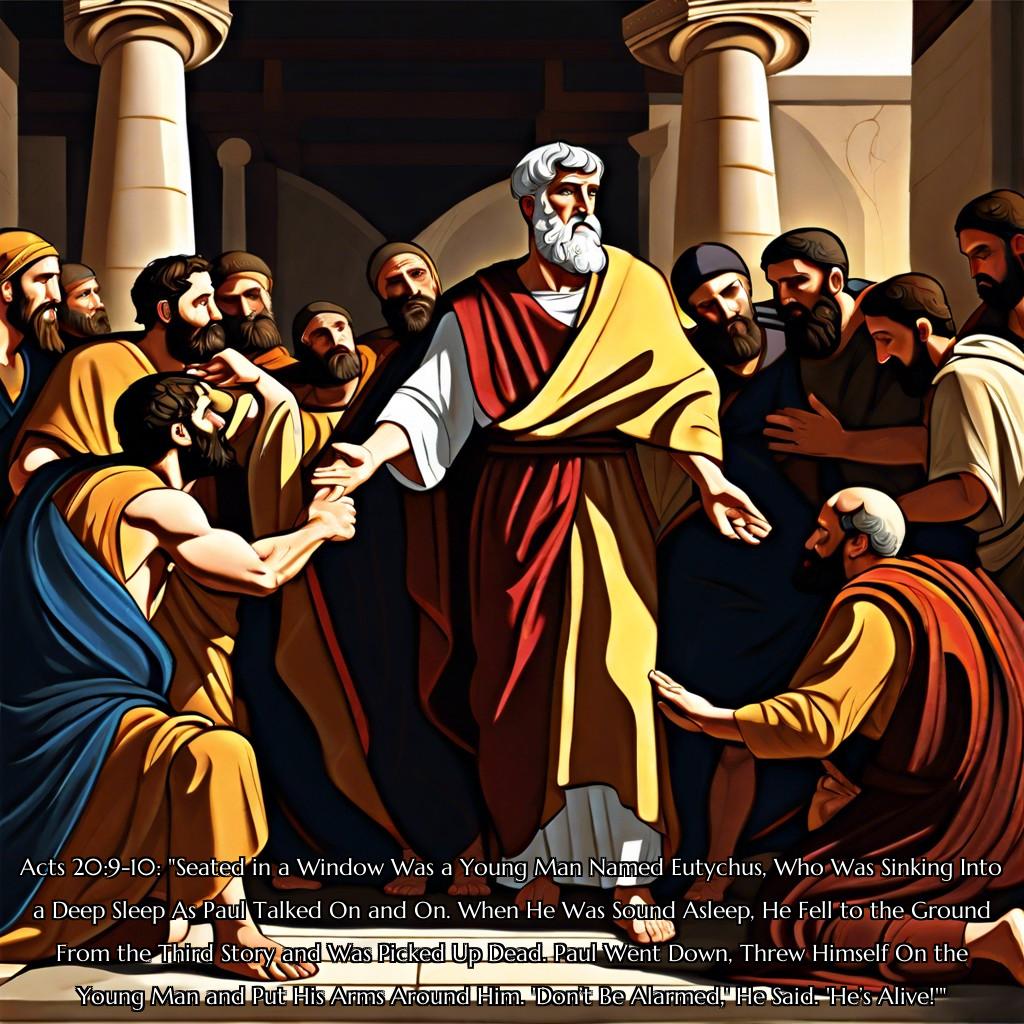
This passage features Eutychus, a young man who couldn’t keep his eyes open during Paul’s lengthy sermon. Falling from a third-story window, he dies upon impact, illustrating the dangers of sleepiness in unexpected settings.
Paul’s reaction is immediate and miraculous. Embracing Eutychus, he miraculously revives him. This event highlights the power of faith and the presence of miracles even during ordinary circumstances.
It also subtly warns about the need to stay spiritually alert. Falling asleep in the faith could lead to unexpected spiritual “falls,” but divine intervention offers restoration and life.
Isaiah 20:2-3: “At That Time the Lord Spoke Through Isaiah Son of Amoz. He Said to Him, “Take Off the Sackcloth From Your Body and the Sandals From Your Feet.” And He Did So, Going Around Stripped and Barefoot. Then the Lord Said, ‘Just As My Servant Isaiah Has Gone Stripped and Barefoot for Three Years, As a Sign and Portent Against Egypt and Cush.'”
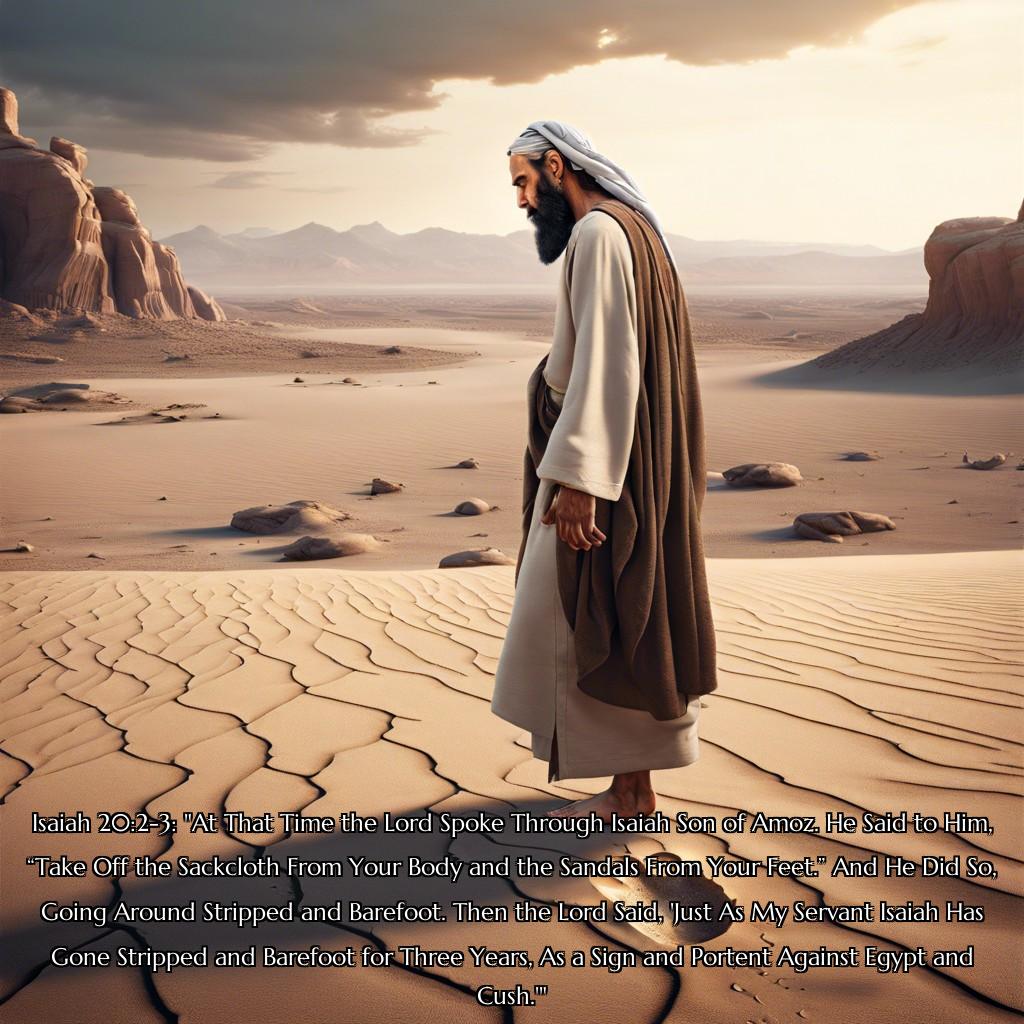
Isaiah’s peculiar action of going stripped and barefoot for three years was rich in symbolism. The act was a physical representation of the impending humiliation and captivity that awaited Egypt and Cush.
First, the removal of sackcloth and sandals symbolized a state of mourning and penance, reflecting the severe judgment to come.
Secondly, Isaiah’s public display served as a vivid, living prophecy, capturing attention and sparking conversations among the people.
Moreover, it emphasized the seriousness with which God viewed the impending judgment. This prophetic sign was intended to warn and urge repentance, showcasing God’s desire for His people to turn back to Him.
Lastly, it highlighted the lengths to which prophets went to deliver God’s messages, often at great personal cost and discomfort. This show of dedication underscored the gravity of the divine message concerning the downfall of these powerful nations.

